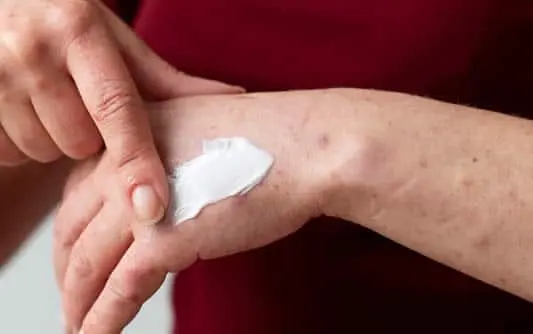Combatting Eczema Flare-Ups
Empower yourself by collaborating closely with your healthcare provider to tailor treatments that suit your unique needs. Considerations such as your symptoms, age, family medical history, existing health conditions, and lifestyle choices all play vital roles in determining the most effective interventions. While many eczema treatments offer temporary relief, options like steroid creams, topical calcineurin inhibitors such as pimecrolimus (Elidel) or tacrolimus (Protopic), and over-the-counter hydrocortisone cream can provide relief from itching and inflammation. For severe outbreaks, combining steroid cream with a moist bandage application can promote healing. Light therapy, whether from natural sunlight or medical-grade UV devices, may also alleviate symptoms. Oral antihistamines like diphenhydramine can provide nighttime relief, while non-drowsy options like cetirizine and fexofenadine can help manage flares. In cases of moderate to severe eczema unresponsive to topical treatments, injectable options such as dupilumab (Dupixent) or tralokinumab (Adbry), administered every few weeks, may be considered. Alternatively, upadacitinib (Rinvoq), a once-daily oral medication, can rapidly reduce itching. Close collaboration with your healthcare provider is essential to manage eczema effectively and minimize the risk of potential side effects from prolonged medication use.
Preventing Flare-Ups and Enhancing Well-Being
Take proactive steps to identify and mitigate triggers that may exacerbate eczema symptoms, as triggers can vary widely among individuals.
Combat Dryness:
If your skin becomes excessively dry, it may become rough and itchy, potentially leading to cracks that permit the entry of bacteria or allergens. Combat dryness by maintaining skin moisture, especially during dry winter months, using a humidifier in your bedroom, and applying moisturizing cream or ointment post-shower. Consider soaking in a warm bath with bath oil or colloidal oatmeal to relieve itching and moisturize the skin.
Avoid Irritants:
Identify potential irritants such as soap, cleansers, laundry detergent, and certain foods with the help of your doctor. Opt for products free from added perfumes or dyes, and keep track of any triggers that may exacerbate symptoms.
Choose Skin-Friendly Clothing:
Opt for soft, breathable clothing that keeps your skin cool and comfortable, avoiding materials like wool if they cause irritation.
Minimize Environmental Triggers:
Take steps to minimize exposure to airborne particles such as dust, smoke, pet dander, or sand, which can aggravate eczema symptoms. Maintain cleanliness in your living spaces, avoid smoking, and seek professional advice if you suspect allergies to pet dander.
Manage Stress:
Practice stress management techniques such as relaxation exercises, prioritize adequate sleep, and explore complementary therapies like aromatherapy or massage to alleviate tension and promote overall well-being.
Schedule a appointment with Dermatologist in Northridge.


